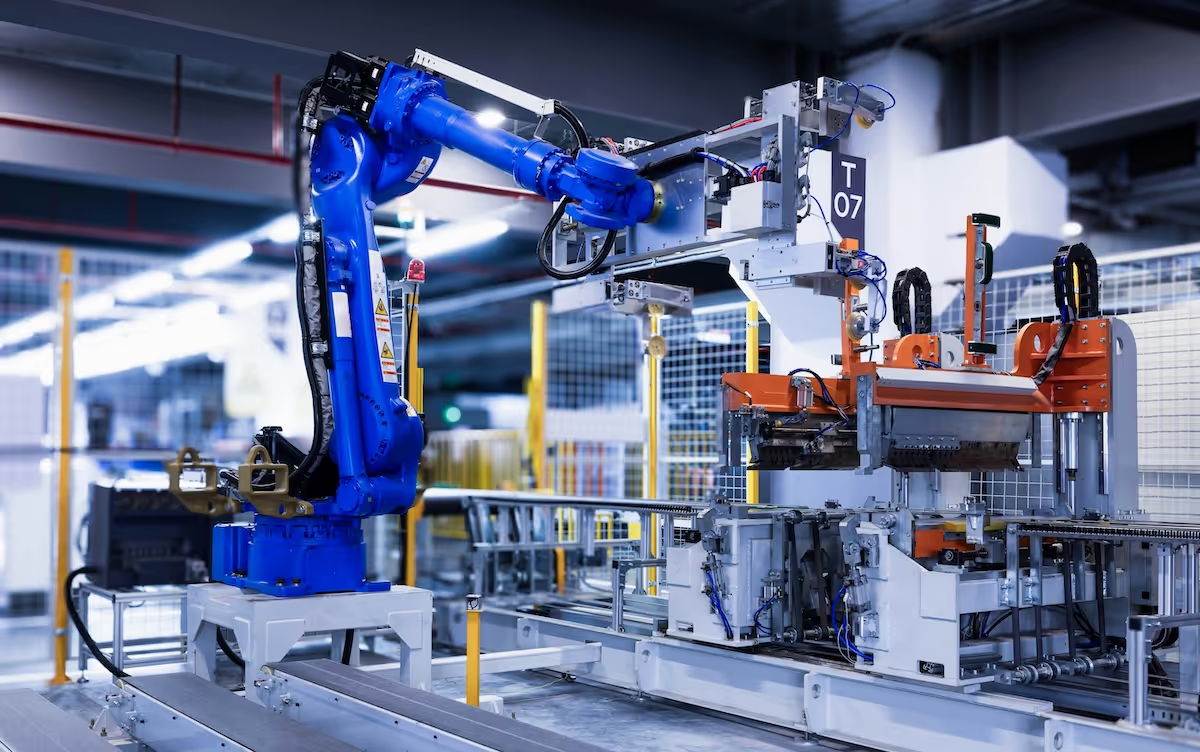“Made for Germany”: 631 billion euros for Germany's future

Germany as an investment location has lost much of its former glory in recent years. But now, a joint initiative between business and politics wants to turn things around and sets a historic sign: Around 60 companies are planning to invest over 630 billion euros in Germany as a location. But what is behind it and what consequences does the expected investment booster have for private investors?
Industry and investors should help Germany out of the crisis
The corona pandemic followed by high inflation combined with “homemade” problems, such as automotive companies that slept through the electrification of their models, brought Germany into crisis. In 2023 and 2024, the economy was in recession, and an upturn is unlikely to be expected in the current year either. It is now time to stimulate the weak economy, especially as the Federal Republic is facing financial challenges — partly due to high spending on arms and infrastructure.
As early as June 2025, the government had therefore launched an “investment booster” to boost the economy. These include a reduction in corporate income tax, improved options for depreciation and an expansion of the research allowance for companies. In addition, the Bundestag and the Federal Council have approved a debt-financed special fund of 500 billion euros for additional government investments in infrastructure and climate protection.
It is also clear from a scientific perspective how urgently these investments are needed: A study by the employer-oriented Institute of German Economics (IW) and the Institute for Macroeconomics and Business Cycle Research (IMK) The Hans Böckler Foundation estimates the additional public investment requirement for the next ten years at around 600 billion euros — and the trend is rising. As early as 2019, the two institutes had identified a requirement of 460 billion euros. The estimate, which has now been updated, takes into account the increased construction costs, measures already implemented and the federal government's current financial planning. The 2025 budget provides hardly any new impetus, so the findings remain clear: Without massive investments — both private and state — Germany is at risk of losing touch with digitization, infrastructure and climate-neutral restructuring.
In order to return to sustainable growth, Germany is also dependent on the participation of companies. Even before a meeting in the Chancellery on July 21, 2025, 61 companies founded an initiative “Made for Germany” announced. Its members plan to jointly invest 631 billion euros in Germany over the next three years.
Companies that have joined the initiative so far include Allianz, Airbus, BMW, Deutsche Börse, Mercedes-Benz, Rheinmetall, SAP, Volkswagen, but also the US companies Nvidia as well as Blackrock and Blackstone. The stated goal is to strengthen, modernize and future-proof Germany as a business location in the long term. This is because investments should go into expanding infrastructure, digitization, research & development and the transformation to climate neutrality. And they start where the reform backlog of recent years has been particularly noticeable: in industrial areas, energy supply and digitization.
This concentrated capital commitment was presented in the Chancellery just in time for the investment summit and thus sent a symbolic signal that underlines the determination to reverse the trend together.
Private sector initiative is needed
The “Made for Germany” initiative also makes it clear that the transformation of the German economy requires not only political statements of will and entrepreneurial support, but also private funding. The Ifo President Clemens Fuest explained in this context: “You can supplement state capital... if 80 percent of the funds come from private investors, the total investment volume that can be achieved is correspondingly higher.”
In modern economics, the combination of private and public capital is regarded as a magic formula for economic success. The focus is on both ongoing and new projects: Around a third of the “Made for Germany” budget — i.e. over 200 billion euros — is to flow into additional investments. The initiative is therefore regarded as an important signal for investors: Germany remains an attractive business location — provided that the framework conditions continue to improve.
The German opportunity for investors?
So that government, corporate and private investments can be bundled, the financial sector is also setting the course to contribute to mobilizing private money with innovative investment products and partnerships. For investors, this development offers several perspectives. Private equity projects in future-oriented industries such as GreenTech, digitization, sustainable energy supply and Industry 4.0, for example, are particularly attractive — areas that offer enormous growth potential and contribute to the modernization of the country.
At the same time, political reforms, such as tax relief, less bureaucracy and more planning security, could further improve the return opportunities of private investments.
Especially in this environment, it is worthwhile to think about new forms of investment. FINEXITY enables private investors to make targeted investments in future-oriented tangible assets and innovative projects today — transparent, digital and even for small amounts. This not only makes economic participation in Germany's transformation possible, but also attractive.
“Made for Germany” is more than just a motto — it is the expression of a new self-image: Anyone who now relies on companies and projects that actively shape this change is taking advantage of return opportunities and investing in Germany's future viability.



